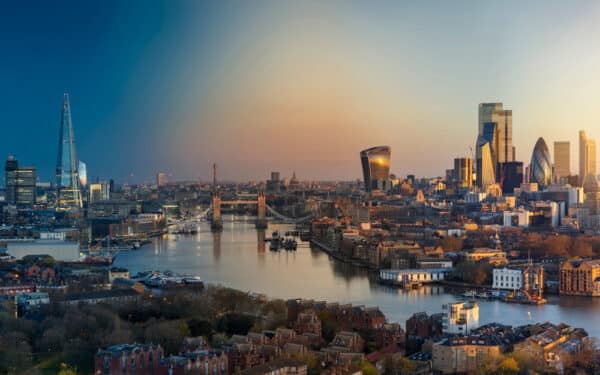Perhaps one of the most tangible benefits we’ve witnessed from the various lockdowns imposed around the world due to the Covid-19 pandemic is the impact on the environment. Fewer cars on the road, only a handful of planes in the air and much of industrial production grinding to a halt has meant all of us are – for the moment at least –gazing at clearer skies and breathing cleaner air. The most recent data showed daily global carbon dioxide emissions fell by an average of 17% by early April.
But the hard truth is that while pollution and emissions may be falling, it is only a temporary reprieve. They have barely made a dent in the efforts to reach the climate change targets set by the member countries of the United Nations in the Paris Agreement in 2015.
The UK Met Office estimates that a 10% drop in carbon emissions would be needed to have a noticeable effect on rising CO2 concentrations. Yet even with the lockdown, the International Renewable Energy Agency (IRENA) estimates this year’s emissions will only fall between 6-8%, which would have no measurable effect on the world’s carbon concentration. As Joeri Rogelj, an expert in climate change at Imperial College London, puts it, “For the climate, this… wake in otherwise record-high emissions is entirely insignificant.”
That’s why it was encouraging this week to see more than 200 major companies call on the UK government to use the pandemic as a conduit to launch a truly green economy. The signatories in the letter to Boris Johnson called for investment in projects such as building renovation, offshore wind, electric vehicles, environmental improvements and low carbon industrial clusters which have the potential to bring investment and job creation across multiple regions of the UK.
But the pandemic is not just highlighting environmental challenges. Health and social inequalities, for example, is another. Despite claims that coronavirus was a great leveller, affecting rich and poor alike, we now know that not to be the case. Black and ethnic minority people in the UK are twice as likely to die than white people. Men in low-skilled jobs are almost four times more likely to die than professionals, with 21.4 deaths per 100,000 people, compared with 5.6 among white-collar male workers. In other parts of the world it’s the same story. In Chicago, the number of confirmed cases in some poor boroughs is 10 times higher than in some districts with better healthcare facilities, while residents in less wealthy parts of Barcelona are seven times more likely to get Covid-19 than people in richer districts.
We should not be limiting our ambitions on meeting the UNs sustainable development goals (SDGs) simply to the environment. Surely we can use the pandemic as an impetus to make headway in other areas too, such as health inequalities, income disparity and education levels?
The question is how to do this – especially at a time when it may be tempting to give many economies a quick fix.
The world was miles off reaching SDG targets even before the pandemic hit, and so the only way of ensuring these goals are met is to change tax structures to reward investments that meet these targets. The Biscay Government will be addressing this by becoming the world’s first administration to introduce a tax regime that rewards investment by companies that meet the SDGs.
While many of the world’s governments have committed to supporting the SDGs, none have formally introduced tax incentives in law to help meet the goals. The Biscay Government has signed a collaboration agreement with University College London (UCL) to advance the definition of a fiscal policy in accordance with the SDGs. This will not just be one single tax either – such as an energy tax – but cover the whole fiscal system. We will develop a framework for fiscal growth and institutional transformation, including economic growth covering health, the environment, equality and education.
Tax incentives have been shown to lead to a change in companies’ behaviour. The UK government’s introduction of a sugar tax in 2018, for example, saw drinks manufacturers reduce the sugar content of their products by 50%, while many countries across the world have introduced tax credits as part of renewable energy promotion policies to increase investment or production in non-fossil fuels. But this will be the first time an entire fiscal system is introduced to meet the SDGs.
This pandemic should be a springboard for policy change. The lockdown has proven things can change for the better on the environment, but as Fatih Birol, the executive director of International Energy Agency has pointed out, the decline in emissions is the result of economic trauma: “It is nothing to celebrate. It is not the result of policy. This decline will be easily erased if the right policy measures are not put in place.”
The current economic and social situation caused by the pandemic requires the adoption of efficient fiscal instruments to guarantee that the process of economic recovery is allied to the creation of more sustainable and inclusive wealth. Then we really will see lasting benefits.
Asier Alea is the Biscay Government’s Director of Strategic Programmes




